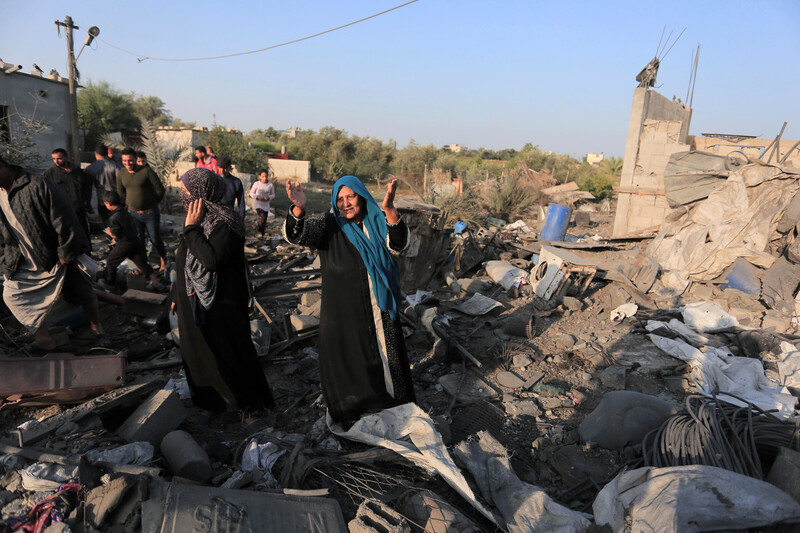No justifying Israel’s bloodshed in Gaza
Rights and Accountability 14 November 2019

Palestinians inspect a home destroyed in an Israeli airstrike in Khan Younis, southern Gaza Strip, on 14 November.
APA images
A truce was declared by Israel and Islamic Jihad early Thursday, bringing an end to 48 hours of violence across the Gaza-Israel boundary that teetered on the brink of a full-blown war.
Gaza’s health ministry stated that Israeli forces killed 34 Palestinians during the fighting, nearly half of them civilians, including eight children and three women. No Israeli fatalities were reported.
Three members of the Ayyad family, among them a 7-year-old child, were killed as they were on a motorcycle in front of their Gaza City home on Wednesday, 13 November.
They were targeted as they were rushing to a hospital after a relative had been injured in a separate attack.
Israeli forces killed two boys in a strike on a carpentry shop in Gaza City that same day. Their father, who owned the shop, and two other men affiliated with Islamic Jihad’s military wing were also killed.
The deadliest single incident in the 48 hours of bombardment occurred soon before the truce took effect on Thursday. Eight persons from the al-Sawarka family – five of them children – were killed and 13 injured when Israel fired four missiles at a pair of tin-roofed shacks in central Gaza.
Israel initially claimed that one of those killed was a commander of an Islamic Jihad rocket unit who was “hiding ammunition and military infrastructure” in his home.
An Israeli military spokesperson “had no information about the airstrike,” the Associated Press reported, “but he said Islamic Jihad commanders store weapons in their homes, making them legitimate targets.”
Reports later emerged indicating that the Israeli military had mistakenly targeted the home of a different man with the same name as the Islamic Jihad commander.
Even if it wasn’t a case of mistaken identity, and weapons were present at the al-Sawarka homes, the laws of armed conflict would forbid Israel from striking them while civilians were present.
Article 57 of the Geneva Conventions states that an attack must be canceled or postponed if it poses a danger to civilians “excessive in relation to the concrete and direct military advantage anticipated.”
Such indiscriminate violence characterizes Israel’s military offensives in Gaza.
No comments:
Post a Comment